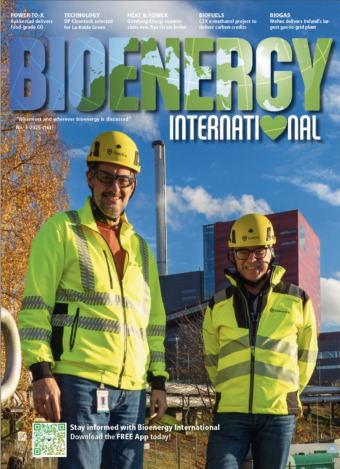The International Maritime Organization (IMO) has agreed to adjourn the extraordinary session of the Marine Environment Protection Committee (MEPC), which was convened October 14-17, 2025, to consider the adoption of draft amendments to MARPOL Annex VI, including the IMO Net-Zero Framework (NZF).
According to a statement, the extraordinary session will be reconvened in 12 months. In the interim, Member States will continue to work towards consensus on the IMO Net Zero Framework.
The Intersessional Working Group on the Reduction of Greenhouse Gas Emissions from Ships, scheduled to meet October 20-24, 2025, will take place and continue its work on guidelines for implementing the NZF.
The IMO NZF was approved at the MEPC 83 session in April 2025, as a new Chapter 5 of the Draft Revised Annex VI of the International Convention for the Prevention of Pollution from Ships (MARPOL).
It comprises a set of international regulations aimed at reducing greenhouse gas (GHG) emissions from ships, in line with the IMO’s 2023 Strategy for Reduction of GHG Emissions from Ships.
It includes two key elements: a global fuel standard and a global GHG emissions pricing mechanism.
NGOs slam IMO deferral
The adoption of the Net-Zero Framework would have marked a crucial first step toward reducing global shipping emissions and supporting vulnerable countries in the transition. Far from rushed, it represented years of negotiations, research, and collective effort. It was a clear and urgent demand from both the industry and the public. Yet, due to pressure from the Trump administration and major fossil fuel-producing countries, this opportunity for progress was lost. We now urge the public and industry to keep pushing for immediate action to cut emissions from global shipping, said Jenny Helle, Expert on Decarbonisation of Aviation and Shipping at Carbon Market Watch.
The Clean Shipping Coalition (CSC) expressed its huge disappointment in the decision by member states to delay consideration of the adoption of the IMO’s Net-Zero Framework (NZF) for one year
By delaying adoption of its Net Zero Framework, IMO has today squandered an important opportunity to tackle global shipping’s contribution to climate breakdown. With climate warming impacts being felt everywhere on Earth, kicking this decision down the road is simply evading reality. Governments serious about climate action must spend the next 12 months rallying every nation that supports the framework, convincing those who are on the fence, or opposing, that its adoption is the only sane way forward, said John Maggs, the Clean Shipping Coalition’s Representative at the IMO.
CSC called on member states to use the time to ensure the framework is strengthened and adopted next time round.
However, all is not lost – not by a long shot, as there is an immediate opportunity to slash GHG emissions from shipping, minimize fuel burn, and the overall cost of the energy transition, and that is to strengthen and make enforceable the Carbon Intensity Indicator (CII), the IMO’s cornerstone energy efficiency measure. There’s no time to waste, at MEPC 84, in April 2026, member states need to focus all their attention on transforming the CII into the energy efficiency powerhouse needed to quickly right this ship and put it back on route to being a climate solution. While the Net-Zero Framework is far from perfect, adopting it would have been an important step to deliver on the IMO’s commitment and send key signals to an industry that was not only asking for a global framework, but actively supported this deal, John Maggs said.



